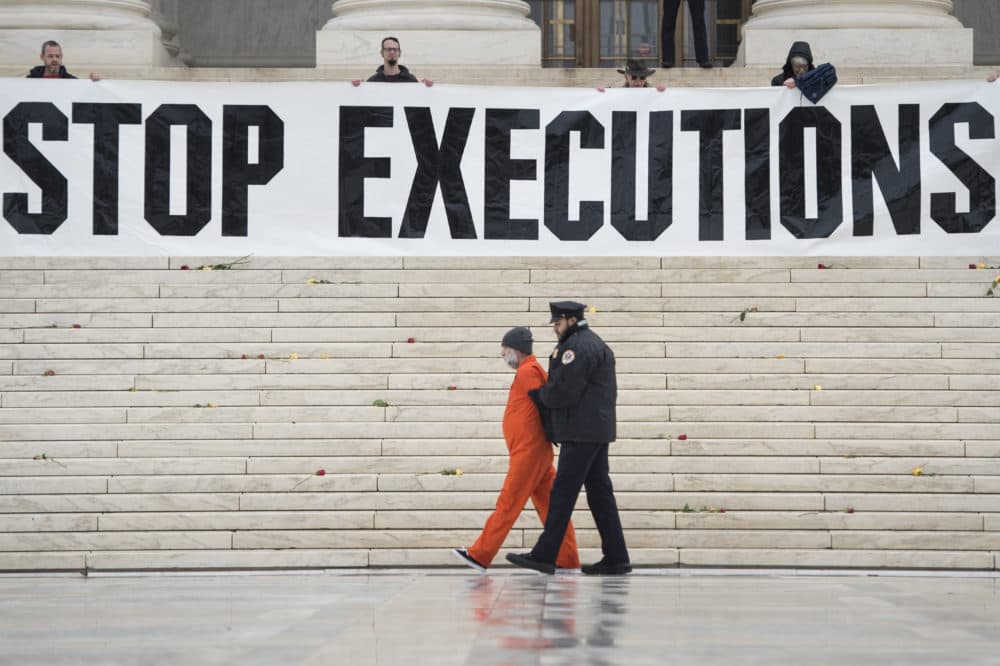Advertisement
Death Penalty Decline Continued In 2019
Resume
In 2019, New Hampshire became the 21st state to abolish the death penalty, while California put all executions on hold.
A report released Tuesday highlights the continuing decline of the death penalty in the U.S. This year, 22 prisoners were executed — down from 25 in 2018, according to Death Penalty Information Center.
“The report shows that the death penalty is disappearing from whole regions of the country and eroding in others,” says Robert Dunham, executive director of the center and the study’s lead author. “There is now a whole area in the Northeast where there really isn't a death penalty at all.”
The report says states like New Hampshire and California are driving the nationwide decline: 25 states either don't have a death penalty or have gubernatorial moratoria against executions, meaning the governor’s office suspended a higher court’s decision.
Plus, 2019 marks the fifth straight year where fewer than 50 death sentences were imposed — an 85% reduction from when death sentences peaked in the mid-1990s, he says. More than 300 inmates were put on death row each year from 1994 through 1996, according to the report.
Nine states have abolished the death penalty since 2000, he says. This year, 90% of executions took place in the South, but the number of new death sentences is lagging behind, he says.
For example, Texas had nine executions this year, more than anywhere else in the country. But that’s a decrease from last year, and the state’s number of new death sentences also decreased to four.
“We also have tremendous evidence of the geographic arbitrariness of capital punishment,” he says. “Whether you get the death penalty depends less on what you're accused of doing than who the prosecutor is in the county in which you're accused.”
The decline in sentences is in part driven by increased public awareness of the “defects in the system,” he says. Two inmates on death row were exonerated this year, meaning a total of 166 people have been wrongfully convicted and sentenced to death since 1973, according to the report.
With the declining rate of death sentences and executions, Dunham says the organization hopes this means prosecutors are considering the death penalty for only a small pool of severe crimes. But that hasn’t been the case just yet, he says.
Of the 22 executions this year, 18 individuals showed evidence of serious mental illness, brain damage or chronic exposure to trauma, he says. And some of them were ages 18 to 21 at the time of the crime, he says.
“It turns out that we are not seeking the death penalty against the worst of the worst and executing the worst of the worst,” he says. “It is now tending to be those defendants who are the most vulnerable — and the cases in which there's the worst of the worst legal process.”
Alex Ashlock produced and edited this interview for broadcast with Kathleen McKenna. Allison Hagan adapted it for the web.
This segment aired on December 17, 2019.

